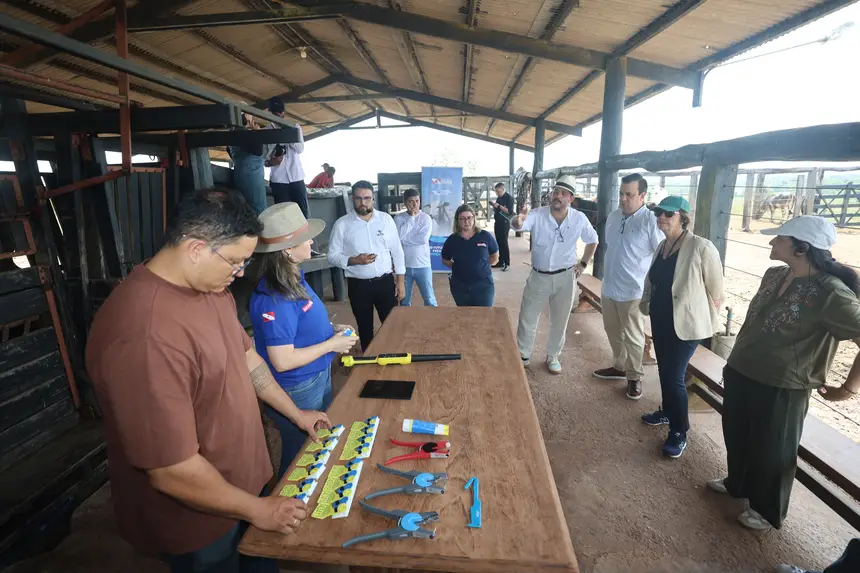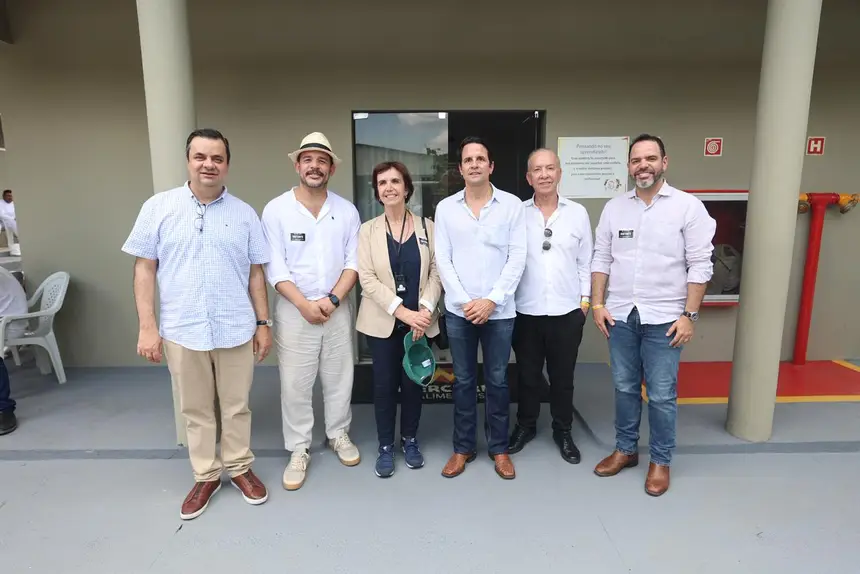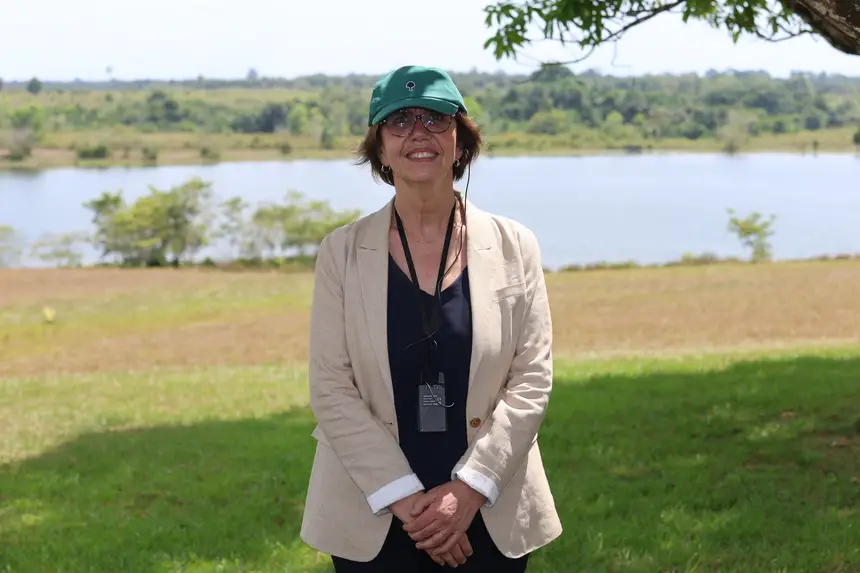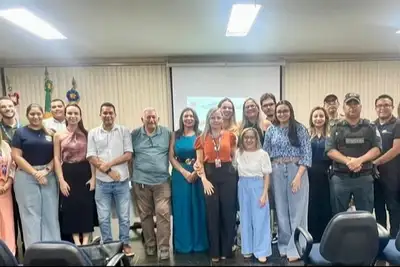Government of Pará presents Sustainable Livestock Farming program to World Organisation for Animal Health
The organization was responsible for recognizing Pará as a foot-and-mouth disease-free area without vaccination. The visit was conducted by Adepará, responsible for managing and controlling the sanitary conditions of the Pará herd.
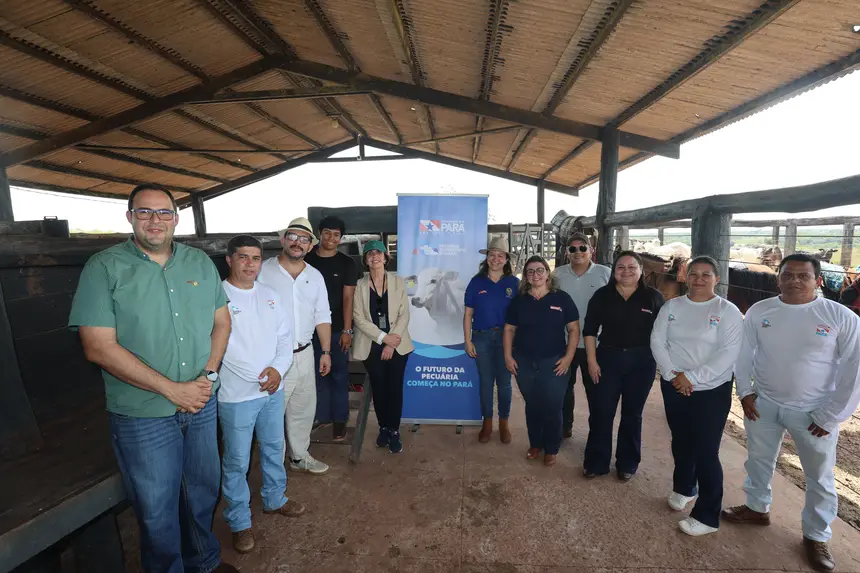
The Government of Pará, through the Agricultural Defense Agency (Adepará), received the delegation from the World Organisation for Animal Health (WOAH) this Tuesday (18) in Inhangapi, northeastern Pará. During the visit, the actions for implementing the Sustainable Livestock Farming Program and the Pará Traceability System were presented. The program is part of the organization's agenda during the 30th United Nations Climate Change Conference (COP30).
The field visit took place at the 'Gato Preto' property and included representatives from the Ministry of Agriculture and Livestock (MAPA), the Federation of Agriculture and Livestock of Pará (Faepa), the Brazilian Association of Meat Exporting Industries (Abiec), and the Union of Meat and Derivatives Industries of the State of Pará (SINDICARNE). The delegation learned about the individual identification process of cattle and buffaloes and the Pará Bovidea Traceability System (SRBIPA), which has already identified over 300,000 animals, serving more than 1,140 agricultural operations in 80 municipalities in the state.
“The Director-General of the World Organisation for Animal Health, Dr. Emmanuele, was able to follow the entire process and phases of animal identification on the property. This immersion is very important for us at Adepará, as we can present to Brazil and the world the potential of Pará's defense and production,” comments the Director-General of Adepará, Jamir Macedo.
Foot-and-mouth disease-free area without vaccination
WOAH is an intergovernmental organization responsible for improving animal health, as well as the safety of animal-derived food worldwide, regardless of cultural practices or economic situations in member countries. In May of this year, in France, the entity was responsible for granting Pará the international certificate of foot-and-mouth disease-free area without vaccination.
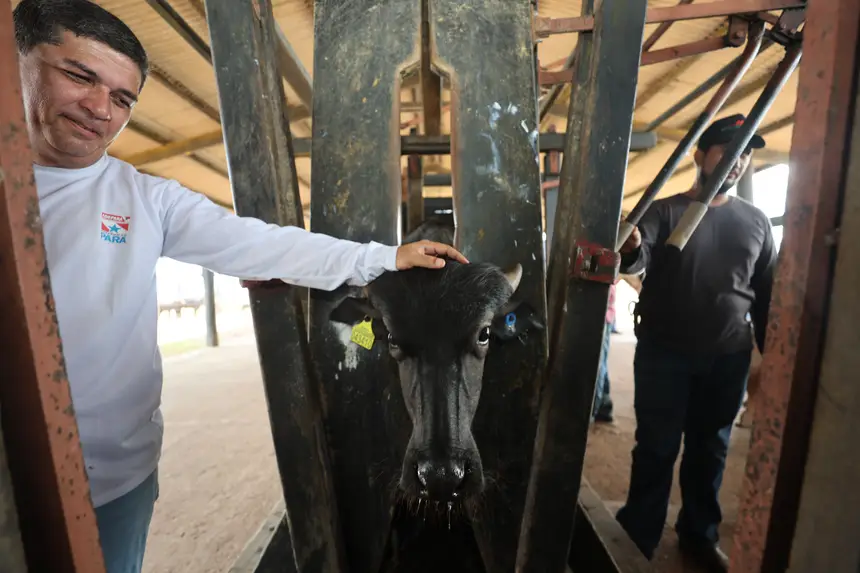
“The traceability system is very important for identifying each animal. I could see the commitment of the private and public sectors here in Pará. I was very happy that the traceability system is being used to combat and prevent diseases. This is very good progress,” stated the Director-General of the World Organisation for Animal Health, Emmanuelle Soubeyran.
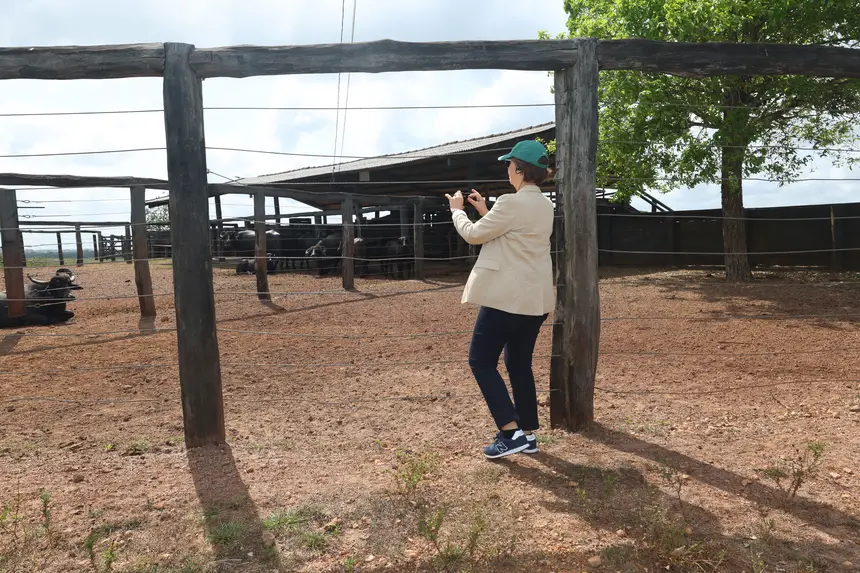
The 'Gato Preto' property raises buffaloes for breeding, rearing, and fattening and fattens cattle using only 1,300 hectares for pastures, out of a total area of 3,300 hectares. By adopting good practices and sustainable management, the property started using identification technology six years ago to assist in herd management. “Animal traceability has been initiated here on the property for about six years; it was implemented to assist in management. In the past, there was a culture of raising one cow per hectare; today, management has improved significantly with the use of this technology. And now, with the traceability that Adepará has been using, it adds value and mainly helps producers who do not have access to this type of technology to manage their animals,” said the property manager, Adilson da Silva.
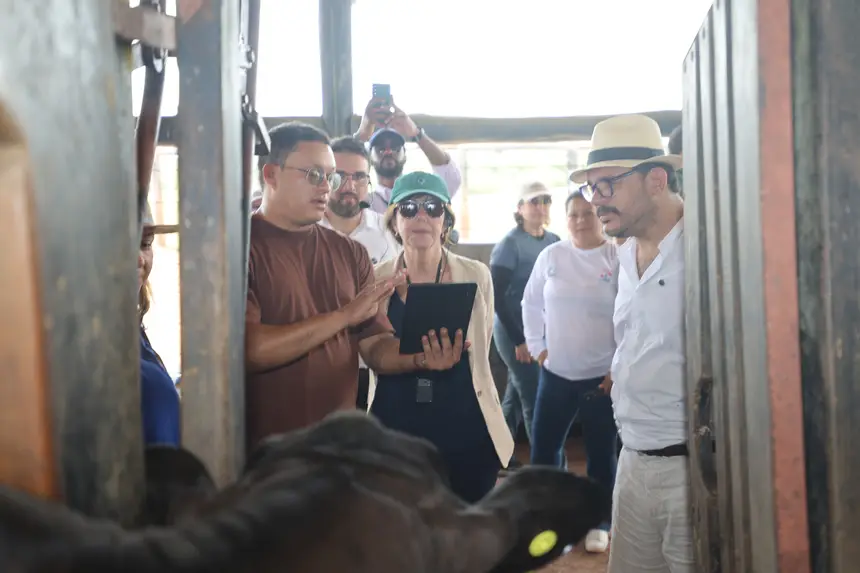
Visit to Mercúrio Alimentos slaughterhouse
The delegation concluded its program with a visit to one of the Mercúrio Alimentos slaughterhouses in Castanhal. The unit is dedicated to the slaughter and processing of cattle, playing a significant role in the company's productive expansion and in strengthening beef exports from Pará. According to the president of SINDICARNE and director of Mercúrio Alimentos, Daniel Freire, it was a moment of pride to demonstrate the sanitary and sustainable productive excellence of the sector.
“For us producers, it is an honor to be able to show and receive the World Organisation for Animal Health so we can demonstrate that our livestock farming uses only 15.5% of our territory; we have the second-largest herd in Brazil, with health free from foot-and-mouth disease without vaccination. This means that we have control over a virus, so we control all the problems in the chain. Showing the guarantee of certified meat production demonstrates unity among the sectors,” affirmed the cattle rancher.


